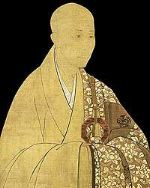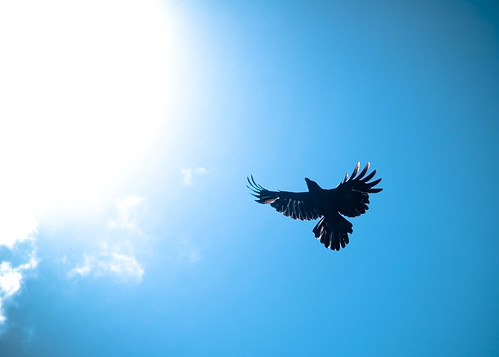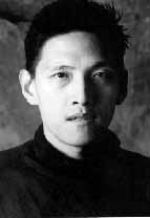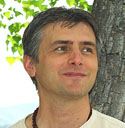Apr 26 2019
Muso Soseki – Temple of Eternal Light
Temple of Eternal Light
by Muso Soseki
English version by W. S. Merwin
The mountain range
the stones in the water
all are strange and rare
The beautiful landscape
as we know
belongs to those who are like it
The upper worlds
the lower worlds
originally are one thing
There is not a bit of dust
there is only this still and full
perfect enlightenment
 — from Sun at Midnight: Muso Soseki – Poems and Sermons, Translated by W. S. Merwin / Translated by Soiku Shigematsu
— from Sun at Midnight: Muso Soseki – Poems and Sermons, Translated by W. S. Merwin / Translated by Soiku Shigematsu

/ Image by sagefille20 /
It has been a couple of years since I last featured something by Muso Soseki.
The mountain range
the stones in the water
all are strange and rare
Considering Soseki’s role as father of Zen gardening practice, whenever he says anything about the natural world, we should pause and pay special attention.
When he describes the mountain range and river stones as “strange and rare,” he is not shrugging his shoulders at something unusual or interesting. He sees something unique, utterly specific, a now-ness only truly recognized when we ourselves are present and genuinely seeing.
The beautiful landscape
as we know
belongs to those who are like it
We only ever perceive what we already are. We may all look and see the same lines and colors of a mountain range, but to actually see it and, on a deep level, recognize what it is, something within ourselves must recognize a shared being with the mountain range.
True seeing is about relationship. It is about inter-being.
This is how we lead into his next statement:
The upper worlds
the lower worlds
originally are one thing
When we settle into the original state, we perceive as part of an inherent oneness. We may still see a mountain range or individual stones in a river, but they are not truly separate from us or from each other. There really are not separate objects in the world, there is, in truth, just one thing with a variety of surfaces and vantage points.
From this perspective, there are no objects, nothing that can be separated out as its own self-existing thing, not even something as small as a mote of dust–
There is not a bit of dust
there is only this still and full
perfect enlightenment
–just this beautiful moment of living awareness we all are.
Have a beautiful day!
PS- I was devastated to hear about the Easter Sunday bombings in Sri Lanka. Always more reason to cultivate awareness, understanding, and healing within our hearts and within our societies.
Recommended Books: Muso Soseki
| Sun at Midnight: Muso Soseki – Poems and Sermons | East Window: Poems from Asia | Roaring Stream: A New Zen Reader | ||
 |
Muso Soseki
Japan (1275 – 1351) Timeline |









